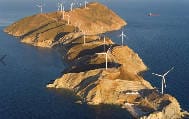**China Finance Online, June 21st (Editor: Xiaoxiang)** – Despite multiple financial reforms by the South Korean government this year, including improving corporate governance and extending Korean Won trading hours, the country’s unexpected reinstatement of the short-selling ban last year by regulatory agencies has dissatisfied many foreign investors. Consequently, South Korea’s long-pursued goal of being included in the MSCI Developed Markets Index has once again failed this year…
In the latest annual classification review, index provider MSCI has decided to classify South Korea as an emerging market, as widely expected.
In its latest statement on Thursday, MSCI said, “South Korea’s recent short-selling ban has increased market access restrictions. Although this ban is expected to be temporary, sudden changes in market rules are undesirable.”
MSCI also acknowledged and welcomed South Korea’s recent measures aimed at improving stock market accessibility. However, it emphasized that for a reclassification to occur, all issues must be resolved, reforms fully implemented, and market participants given sufficient time to thoroughly assess the effectiveness of these changes.
Every year, MSCI classifies stock markets into developed, emerging, frontier, or standalone markets based on economic development, size and liquidity requirements, and market accessibility. South Korean officials have long hoped that their market would be included in the Developed Markets Index to enhance its appeal to foreign investors.
Before announcing the latest classification, MSCI released its annual market accessibility review earlier this month. MSCI stated that the accessibility rating of the South Korean market had not improved, and the short-selling status was downgraded from “+” to “-”.
In 2009, MSCI had placed South Korea on its watch list for developed markets. However, due to issues like currency trading time restrictions, MSCI decided to remove South Korea from the list in 2014. The latest annual classification review results mean that South Korea will continue to be grouped with emerging economies like China and India in the MSCI Emerging Markets Index.
This year, the South Korean government has been trying to boost the so-called “Korea Premium” by increasing corporate valuations, making Korean stocks more attractive to investors and eliminating the “Korea Discount” compared to other global markets. Additionally, forex market reforms are progressing, with the Seoul Forex Market Operations Agreement announcing last week that from July 1, the trading hours for the Korean Won against the US Dollar will be extended to 2 a.m. the next day, covering the UK London financial market trading hours.
However, the short-selling ban implemented at the end of last year has evidently cast a shadow over the prospects of South Korea’s market upgrade.
In November last year, the Financial Services Commission of Korea announced a comprehensive ban on new short-selling positions for Kospi 200 and Kosdaq 150 index constituent companies. The short-selling ban was initially set to end by June 2024. However, South Korean officials stated last week that they have requested to extend the ban, which is expected to last at least until the end of March next year.
Chang Hwan Sung, a portfolio manager at Invesco in Hong Kong, noted that if the South Korean government resumes legal short-selling from March 31 next year as promised, a series of reform measures could increase its chances of being upgraded to developed market status.
However, he also pointed out that it is still uncertain whether the ban will be completely lifted or only partially lifted.


